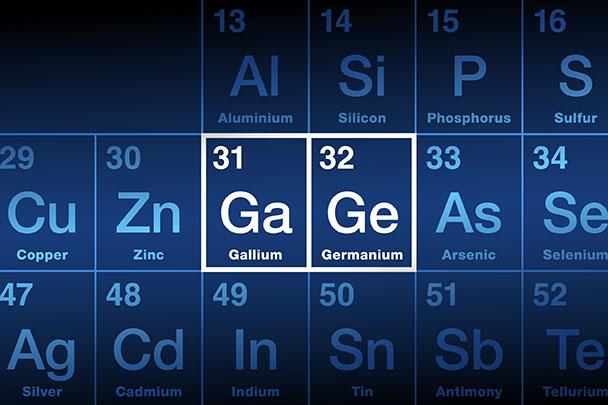

Germanium is a chemical element with the symbol Ge and atomic number 32. It is a member of the carbon group in the periodic table, and it is a metalloid.
Germanium has a number of unique properties that make it useful in a variety of applications. For example, germanium is a semiconductor, which means that it can conduct electricity under certain conditions. This makes germanium useful in the manufacture of transistors, diodes, and other electronic devices.
Germanium is also a very good conductor of heat. This makes germanium useful in the manufacture of optical devices, such as lenses and windows. Germanium is also used in the manufacture of chemicals, such as germanium tetrachloride and germanium dioxide.
Germanium is a relatively rare element, and it is not found in large quantities in the Earth's crust. However, germanium can be mined in a few countries, including China, Brazil, and the United States.
The demand for germanium is expected to grow in the coming years, as germanium is used in more and more applications.
Germanium is a metalloid that is chemically similar to silicon.

Noun: germanium.
Adjective: germanic.
Verb: to germanize.
Adverb: germanically.
The word "germanium" comes from the Latin word "Germania", which refers to Germany. The element was named after Germany because it was first discovered in a mine in the German state of Saxony.
What is germanium?
Question: What are the uses of germanium?
Answer:
Germanium is a versatile element with a variety of uses. It is used in: